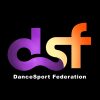WikiDanceSport: List of Guidelines
This list of key WikiDanceSport guidelines is a summary of the most important guidelines that are currently in use.
Behavioral#
Behavioral guidelines currently based on five conduct policies.
Assume good faith#
Unless there is strong evidence to the contrary, assume that people who work on the project are trying to help it, not hurt it.
Conflict of interest#
Do not use Wikipedia to promote yourself, your website, your mixtape, or your organization.
Disruptive editing#
Participants with a pattern of edits that has the effect of disrupting progress toward improving an article or the fundamental project of building an encyclopedia may be blocked or banned indefinitely.
Etiquette#
Contributors have different views, perspectives, and backgrounds, sometimes varying widely. Treating others with respect is key to collaborating effectively in building an encyclopedia.
User pages#
You can create new page to add a little information about yourself or to help you to use WikiDanceSport more effectively. However, remember that WikiDanceSport is not a blog, webspace provider, or social networking site.
Content guide#
Content guidelines expand on the eight content policies.
Autobiography#
Avoid writing or editing an article about yourself, other than to correct unambiguous errors of fact.
Content forking#
Articles should not be split into multiple articles just so each can advocate a different stance on the subject.
External links#
External links should be kept minimal, meritable, and directly relevant to the article. WikiDanceSport is not an advertising opportunity.
Images#
Images must be relevant to the article that they appear in, properly referenced, and large enough to reveal relevant details without overwhelming the text.
No disclaimers in articles#
WikiDanceSport contains spoilers, potentially objectionable material, and more. There is generally no need to warn readers of this.
Non-free content and Non-free use rationale guideline#
Non-free content including all copyrighted content can only be used in specific cases, and must be employed judiciously. Its usage must be considered fair use under U.S. copyright law, and comply with the non-free content criteria policy.
Plagiarism#
Duplicating the work of others without proper attribution is unethical and can bring the project into disrepute. Give credit where it’s due.
Spoiler#
It is not acceptable to delete information on the basis that it might “spoil” a reader’s experience of a narrative work.
Editing#
Article size#
Discusses the optimal size for articles.
Be bold#
Wikis develop faster when people fix problems, correct grammar, add facts, make sure the language is precise, and so on. We expect everyone to be bold. It is okay.
Disambiguation#
Resolving the conflicts that arise when a single term is ambiguous – when it refers to more than one topic covered by WikiDanceSport.
Categories, lists, and navigation templates#
This guideline helps editors choose appropriate grouping techniques.
Categorization. Categorization of people. Redirect categories. User categories#
Guidance on the proper use of the categorization function in WikiDanceSport.
Over categorization#
Over categorization makes categories more crowded and less useful.
Reviewing good articles#
Provides advice on how to fairly review Good articles.
Shortcut#
A shortcut is a specialized type of redirect page that provides an abbreviated wikilink to a project page or one of its sections, usually from the WikiDanceSport namespace.
Naming conventions#
Article titles#
The main page for naming conventions for article titles. Also has links to topic-specific conventions on article titles.
Category names#
Category names should be specific, neutral, inclusive, and follow certain conventions.
File names#
Image files, and other files, should have readable file names
Notability#
Notability#
WikiDanceSport has a right to only include the subjects that have received significant outside attention warrant
Style#
Manual of Style#
This is the most important style guideline, and the “parent” of all the other style guidelines. It provides guidance on matters such as spelling, punctuation, capitalization, and formatting.
Manual of Style (dates and numbers)#
Consistent standards in the use and formatting of dates and numbers make articles easier to read, write, and edit.
Manual of Style (footnotes)#
Footnotes serve two purposes. First, to add explanatory material that might be distracting if included in the main text. Second, to present citations of sources that support the text’s assertions.
Manual of Style (layout)#
Common principles guide formatting of large-scale article components in most cases. Complicated articles may be best modeled on the layout of an existing article of appropriate structure.
Manual of Style (lead section)#
The lead should define the topic and summarize the body of the article with appropriate weight.
Manual of Style (linking)#
Provide links that aid navigation and understanding, but avoid cluttering the page with obvious, redundant and useless links.
Manual of Style (words to watch)#
Be cautious with expressions that may introduce bias. Use clear, direct language.
Readability#
Accessibility#
The page outlines the goals of making web pages easier to navigate and read.
Understandability#
Strive to make each part of every article as understandable as possible to the widest audience of readers.

